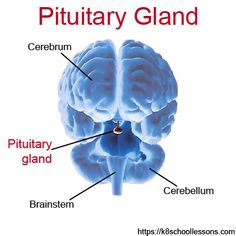Endocrine glands play an important role in the human body because they are the primary sources of hormones that regulate different bodily activities. If these glands perform abnormally, in most cases they may lead to a number of conditions that would otherwise affect the normal state of health of an individual. This paper also describes some of these gland diseases so as to appreciate and understand the notion under discussion present the prevailing condition, causes, symptoms, diagnosis and treatment of the said disorders.
Disorders of Glands Will Be Covered In This Portion of The Study
The various glands of the human body can be classified into two broad categories; the type of gland which is responsible for the secretion of hormones into the blood system for instance the adrenal or the thyroid gland and exocrine glands which release their secretion through ducts to the outside such as in salivary or sweat glands, for instance. Disorders of these glands come with a variety of causes and consequence ranging from genetic elements, autoimmune illness, infections, physical growths among lifestyle and environmental factors. Gland disease management requires that the intervention be put in place not only at diagnosis but also from as early as possible before complications develop. Common Gland Disorders 1 . The Thyroid Gland Disorders The thyroid gland which is conical shaped and located in the neck area of the human body helps in hormone synthesis which helps in the control of metabolic processes. The disorders comprise of: Hypothyrodism: which correlates to the underproduction of hormones causing fatigue and weight gain, as well as an intolerance to the cold. Hyperthyroidism: an overproduction of the hormone, associated with weight loss, elevated heart rate, and intolerance to heat. Thyroid nodules: The growth of abnormal lumps within the thyroid gland, either benign or malignant in nature.
2. Gluten alterations: Adrenal glandAs an endocrine organ that secretes various hormones involved in metabolism, immune function, and stress management, the adrenal glands are situated above the kidneys. There are many different types of disorders affecting these organs such as:
Cushing’s syndrome: Wherein an individual is said to have an abdominal obesity caused by hypercortisolism, or onset excessive cortisol in the blood.
Addison’s disease: A state where there is insufficient production of the hormones cortisol and aldosterone resulting in fatigue, weight loss and hypotension.
3. Pituitary glands’ related disorders Within the endocrine system, the pituitary gland or hypophysis is often regarded as the “mother of all glands.” Apart from it producing hormones, it also ensures that other glands in the body do so. This in turn means that other hormones come from these other glands, thus other examples include: Pituitary adenomas: Benign neoplasms resulting in excessive production of a specific hormone causing complications that differ depending on which hormone has been affected.
Hypopituitarism - this refers to the decreased secretion of trophic hormones related to the pathology of the pituitary gland and/or its adjacent structures with clinical effects depending on the specific hormone affected.
4. Disorders of the pancreas
The pancreas is a form of an exocrine gland, which is accountable in bringing out the Digestive enzymes and also bringing forth insulin. Orders raised included
Diabetes mellitus: this condition is due high levels of blood glucose due to either insufficiency of the insulin hormone or to the presence of insulin itself, its actions are resisted within the tissues.
Pancreatitis: It refers to the condition which is characterized by inflammation of the pancreas as a result of, for instance, obstructing gallstones or excessive alcohol consumption.
2. Tandem Disorders of Parathyroid.
The parathyroid glands maintain homeostasis of calcium levels in the body. Some of such examples include:
Hyperparathyroidism: These disorder occurs due to excessively high levels of parathyroid hormone at the bloodstream causing hypercalcemia which leads to kidney stones and back pain.
Osteoporosis: Underproduction of parathyroid hormone causing low levels of calcium in the blood thereby causing some side effects like muscle cramps and seizures.
Symptoms and Diagnosis
And while there are several disorders of this gland, their symptoms are extremely varying depending on which gland is affected and if the hormone levels are too high or too low. Such signs include weakness, increase or decrease of body weight, and instability of emotions among other symptoms. Specific tests such as a hormonal assay in blood, imaging studies (ultrasound or MRI), and sometimes a biopsy are included in the investigation.
Treatment Options
Anti-gland treatment primarily aims at re-establishing the normal levels of the affected hormone while minimising the symptoms:
Medication: Evidence of hormonal deficiency is substantiated by prescribing appropriate hormones or, in cases of hormonal abuse ceasing excess production of hormones, drugs are prescribed.
Operations: surgical removal of neoplasic nodules or cysts, glands, for example, in (goitre) the case of thyroid nodules a thyroidectomy is performed.
Changes in Lifestyles: Changes in diet, exercise and calming techniques are some of the ways that are used to manage symptoms and improve health.
Last Word
In light of the fact that gland disorders present a clinical challenge that is rapidly increasing it is important to conduct prospective studies to mitigate the problems arising from treatment changes. Longs days of health seeking which are typical to many patients complaining about such conditions due to pressure from their surroundings and thinking that it is a normal condition will have been overcome. And the great news is that medicine has been changing over the years and will always provide new developments both in related knowledge and therapeutic approaches.
The population should also be educated regarding the prevention of such gland disorders so that they do not develop the illnesses or if they do they do not fear asking for assistance at the right time. It is further expected that if studies continue and new breakthroughs created in the medical field, the control of gland disorder cases will be much easier than it is today which will enhance the comfort of millions.






0 Comments